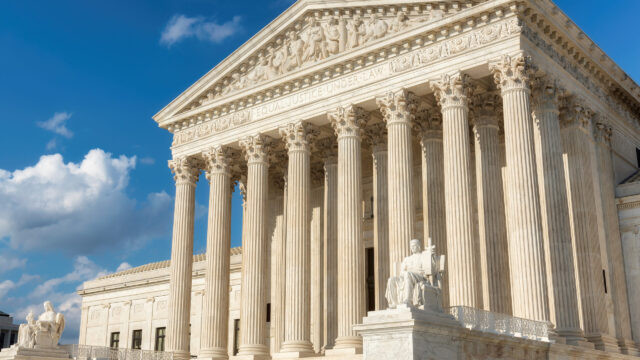Supreme Court Deals Blow to Big Tech’s Campaign to Immunize Itself from Regulation
July 1, 2024

The Supreme Court’s decision in the NetChoice cases is a huge loss for NetChoice. NetChoice’s shoot-for-the-moon strategy failed miserably. The Big Tech trade group sought a pronouncement that platform design choices are wholly protected expression, but the Court refused to take the bait. Instead, the Court took the approach that EPIC advocated in its amicus brief: to the extent that the decision recognizes any protected editorial judgment for platforms’ decisions about whether and how to display content, it is narrowly confined to decisions that reflect a company’s judgements about the content, and does not include content-neutral design decisions.
The Court’s holding was that a facial First Amendment challenge must be based on a robust record and careful interpretation of the full sweep of the law. This is a rebuke of Big Tech’s recent litigation strategy, which is to challenge entire regulatory schemes by misconstruing the laws and warning that those misconstructions could hypothetically be enforced in an unconstitutional way. Examples include NetChoice’s challenge to California’s Age-Appropriate Design Code and X’s challenge to California’s social media transparency law.
The Court’s majority dealt NetChoice another loss in its non-binding guidance about when a law implicates social media companies’ editorial judgment. The trade group had argued that all platform design choices are protected expression. While the Court recognized that some content-based moderation decisions may be protected editorial judgement, the Court juxtaposed these choices with decisions about selecting and ranking content based on users’ behavior or preferences. The Court’s refusal to conflate content-based moderation decisions with other platform design activities means that content-neutral platform design laws and privacy laws, such as NY’s SAFE Act or the properly construed California Age-Appropriate Design Code, are likely constitutional.
Finally, the majority and concurrences also made clear that platform transparency laws should be analyzed under the standard set in the Zauderer case, which asks whether the mandate is unduly burdensome. Big Tech and its allies have argued that all laws that require companies to be transparent about their content moderation practices are presumptively unconstitutional.
EPIC has a robust platform governance program and routinely files amicus briefs in important platform accountability cases.

Support Our Work
EPIC's work is funded by the support of individuals like you, who allow us to continue to protect privacy, open government, and democratic values in the information age.
Donate